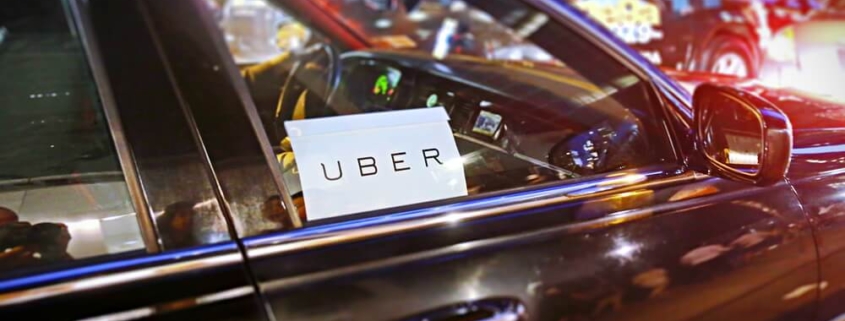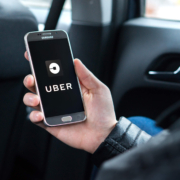Car Accidents and The Gig Economy: Legal Implications for Delivery Drivers
The gig economy has given rise to a new breed of workers, including delivery drivers for companies like UberEats, DoorDash, and Postmates. The gig work model also raises complex legal issues, especially in the context of car accident liability. A proven and trusted car accident attorney can provide you with strong legal representation and pursue all available avenues to recover maximum compensation for your injuries and losses.
Factors Affecting Traffic Accident Claims for Gig Workers in Alabama
Worker Classification
The question of whether gig economy delivery drivers are considered employees or independent contractors can significantly impact liability in the event of a car accident. The Alabama Department of Labor follows federal guidelines for determining worker classification, taking into account factors such as control, financial independence, and the nature of the work performed. Gig economy companies often classify their drivers as independent contractors, potentially limiting their liability in accidents.
Insurance Requirements
In Alabama, all drivers are required to carry liability insurance. Taking this into account, the minimum coverage may not be sufficient to cover the costs of a serious accident. Gig economy companies typically provide commercial auto insurance for their drivers while they are actively engaged in a delivery. You should speak with a prolific car accident attorney as soon as possible. They can help you understand when this coverage applies and the specific limitations.
Compensation for Injuries
Injured parties, including delivery drivers, have the right to recover compensation from the at-fault party, which may include other drivers or even the gig company in some circumstances. Furthermore, Alabama also follows a “contributory negligence” rule, meaning that if the injured party is found even slightly at fault for the accident, they may be barred from recovering damages.
Potential Defendants for Injuries Sustained by a Delivery Driver
Other Drivers
If the accident is the result of another driver’s negligence or reckless behavior, that driver may be held responsible for the injuries suffered by the delivery driver. In such cases, the injured driver may pursue a personal injury claim against the at-fault driver.
Gig Economy Company
Typically, a company provides commercial auto insurance that covers drivers when they are actively engaged in deliveries. In some situations, gig companies classify their drivers as independent contractors rather than employees. If a court determines that a driver is misclassified as an independent contractor when they should legally be considered an employee, the company may face greater responsibility for the driver’s injuries, including workers’ compensation benefits and other protections typically afforded to employees.
If the gig company failed to provide adequate training or supervision, which could have prevented the accident, it might be held responsible for the injuries. This is especially relevant if the company did not sufficiently educate drivers on safe driving practices and the use of their mobile apps.
Third Parties
Depending on the circumstances, other third parties, such as maintenance companies responsible for the driver’s vehicle, may share liability if negligence on their part contributed to the accident.
Public Entities
In cases where the accident resulted from dangerous road conditions, poor signage, or other issues that are the responsibility of a public entity, such as a city or state government, the injured driver may hold that entity accountable.
Potential Insurance Gaps for Delivery Drivers
The potential insurance gaps in the gig economy stem from the transition between specific periods and the nature of auto insurance policies:
- Period 1 – Personal Use: When a driver is offline or using their vehicle for personal purposes, their personal auto insurance policy is in effect. Personal auto insurance policies may not cover accidents that occur while a driver is actively using their vehicle for business purposes. In some cases, these policies may have a “business use exclusion” clause.
- Period 2 – Waiting for a Request: The driver is online and available for gig work during this period, but has not accepted a specific delivery request. Some gig companies provide contingent liability coverage, which may be limited. This means that if an accident occurs while a driver is waiting for a request, there could be gaps in coverage.
- Period 3 – Active Delivery: The driver is actively engaged in delivery at this point. The gig company’s commercial auto insurance will typically cover the driver.
The transition between periods can be particularly problematic. For example, if an accident occurs while a driver is transitioning from personal use to actively delivering, it may be challenging to determine which insurance policy is applicable.
Filing a Lawsuit to Recover Maximum Compensation
If you are involved in a severe accident and want to file a lawsuit to recover compensation, you need to do it within two years of the accident (Code of Alabama § 6-2-38). In some accidents, determining liability can be complex, especially in cases of shared fault. A committed attorney can investigate the accident thoroughly, gather evidence, and work to establish liability to your advantage.
Important Considerations:
- You need to consult with a lawyer as soon as possible after the accident to ensure you meet all statutory deadlines for filing personal injury claims.
- Be cautious about speaking with insurance adjusters or other parties involved in the accident without your attorney’s guidance. What you say can impact your case.
- You should keep detailed records of all expenses related to the accident, including medical bills, repair costs, and any other out-of-pocket expenses.
Choose a Dedicated Personal Injury Lawyer to Maximize Your Compensation
The experienced auto accident attorneys at the Smith Law Firm are committed to ensuring that your right to compensation is fully protected and that you receive the strongest legal support. To request your initial consultation , call us at 334-377-1674 or fill out this online contact form.

 Car Accidents and The Gig Economy: Legal Implications for Delivery Drivers
Car Accidents and The Gig Economy: Legal Implications for Delivery Drivers

 Surviving Financially for A Stay At Home Mom After Divorce
Surviving Financially for A Stay At Home Mom After Divorce